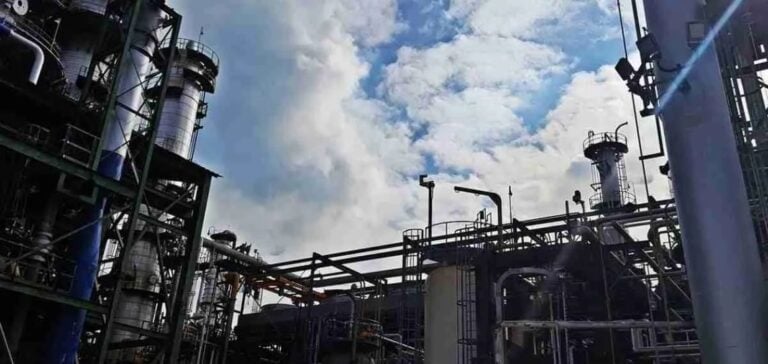Global demand for polymers continues to reshape the petrochemical market, a critical segment of the chemical industry. Petrochemical-derived polymers, such as polypropylene, polyamide, and high-density polyethylene, are widely utilized in industries including automotive, packaging, and construction. According to a report by The Insight Partners, the petrochemical market, estimated at $457.57 billion in 2023, is expected to reach $685.01 billion by 2031, recording a compound annual growth rate (CAGR) of 5.2%.
Asia-Pacific stands as the undisputed leader, holding a significant share of global plastic production and consumption. For instance, China accounts for 32% of global plastic production, driven by sectors like consumer goods and beverages. This dynamism also reflects the rapid expansion of packaging industries, particularly in emerging economies such as India and Vietnam.
Polymers at the Heart of Industrial Innovation
Petrochemical polymers play a central role in modern manufacturing solutions. In the automotive sector, they are essential for producing lightweight components that enhance fuel efficiency and reduce emissions. Furthermore, their durability and corrosion resistance make them ideal for exterior panels and under-the-hood applications.
According to Plastics Europe, global plastic production surged from 380.4 million tons in 2020 to 400.3 million tons in 2022. This rise not only highlights increasing demand but also reflects ongoing innovations in polymer applications.
Packaging: A Key Growth Driver
The packaging sector remains a primary driver of petrochemical demand, thanks to the flexibility and resilience of plastics. Materials such as polyethylene and polyethylene terephthalate (PET) dominate the food and beverage packaging industry, meeting durability and preservation criteria. In Asia-Pacific, the rise of e-commerce has further amplified the demand for robust and innovative plastic packaging solutions.
Market Challenges and Opportunities
However, the petrochemical sector faces challenges related to environmental regulations and growing sustainability concerns. Transitioning to recyclable plastics and investing in greener technologies could shape the industry’s future. Additionally, crude oil price fluctuations, a key raw material, remain a determining factor in market dynamics.
Major players such as Shell International BV, SABIC, and BASF SE are intensifying efforts to address these challenges. For example, new production methods utilizing alternative raw materials, such as recycled plastics, are under development, offering a promising outlook for the sector.






















